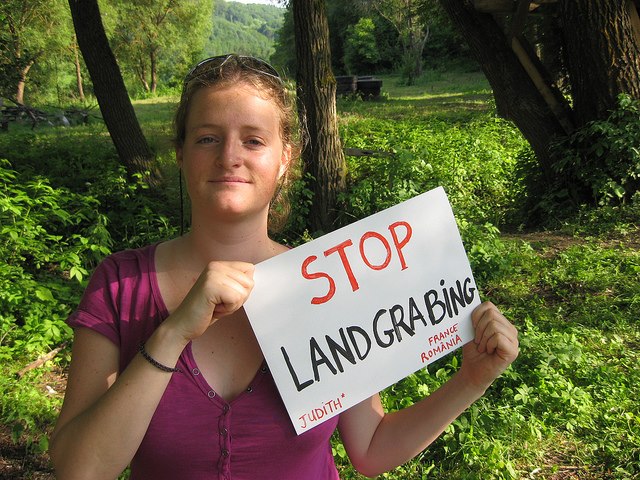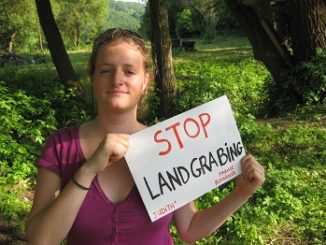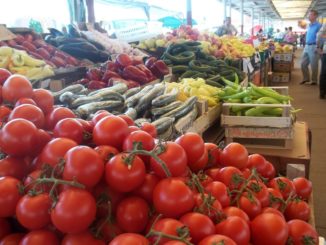The European Union is currently witnessing a massive land concentration process which has a direct impact on 25 million of its citizens, mainly small-scale farmers, also changing the way lands are being managed and how food is being produced. The land grabbing wave especially hit new member states like Romania, Bulgaria and Hungary but also other Eastern European countries like Poland or Lithuania, concentrating millions of hectares of farmland in the hands of a few multinationals and private investment funds. A legitimate question arises: Where did the national moratoriums on land sale go wrong?
 From the EU point of view this seems like a paradox. When new member states joined the European Union, they were granted the rights to maintain their national moratoriums on land sales as fear circulated that individuals and companies within the EU would capitalize on their wealth by acquiring cheap farmland and adhering countries could find themselves pushed out from their own land markets. While moratoriums did their job when it came to foreign individuals, they were found to be ineffective in case of large land deals involving multinational companies or other business institutions. Investors simply registered their companies in the targeted country and were set to buy up tens of thousands of hectares of agricultural land.
From the EU point of view this seems like a paradox. When new member states joined the European Union, they were granted the rights to maintain their national moratoriums on land sales as fear circulated that individuals and companies within the EU would capitalize on their wealth by acquiring cheap farmland and adhering countries could find themselves pushed out from their own land markets. While moratoriums did their job when it came to foreign individuals, they were found to be ineffective in case of large land deals involving multinational companies or other business institutions. Investors simply registered their companies in the targeted country and were set to buy up tens of thousands of hectares of agricultural land.
As the transitional periods are ending, from the 1st of January, 2014, member states have to give up their moratoriums and face the competitive EU market. Spirits heat up in the new member states as their decision makers are trying to play their final hands as well as possible. Some, like Bulgaria, want an extension on the land sale ban and now face sanctions from Brussels. Others, like Romania, proposed a set of rules and limits on land purchase, all of which the European Union refuses to accept, leaving the country opened and unprepared in front of the stiff EU competition.
Poland successfully negotiated a longer transitional period back in 2004, so the countries ban will only expire in 2017. In the meantime, citizens of the EU-27, Iceland, Liechtenstein and Norway can buy up to one hectare of agricultural land without a permit. Any greater land area requires approval from the government and shall not be subject to ownership but lease.
Lithuania was allowed an extension in 2011, when their transitional period expired. Still, German based agribusiness company KTG Agrar found a way to access tens of thousands of hectares of agricultural land to secure its biofuels production there.Indeed, as ARC reporyearso granted a 3
ted during the summer, this group are even involved in this practice in Germany.
In July 2012, the conservative Hungarian government pushed for a bill which aimed to ban foreign investors from buying farmland once the moratorium is lifted in 2014. Since the beginning of its EU accession process in 1994, Hungary’s land law has stipulated that foreign investors can only rent (not buy) agricultural land and they can only get 300 ha for a maximum lease period of ten years.
Despite these measures and political risks, the above mentioned countries face the swiftest land concentration process. China’s Tianjin State Farms Agribusiness Group Company already invested a total of EUR 10 Million in the lease of 20000 hectares of agricultural land in Northwestern Bulgaria (Severozapaden), the poorest EU region, to produce corn, forage, and sunflower for export. Qatar is also ready to invest EUR 100 million in the stock breeding sector and Kuwait bets USD 480 million just on Bulgarian agriculture through the establishment of a joint company.
Romania has already lost more than 1 million hectares, 10% of its of agricultural land. The massive acquisition and long-term leases were made by agribusiness companies and investment funds coming from all over Europe, like Germany, Austria, Italy and Denmark, but also from much further away such as the Middle East.
Hungary also gave up more than 1 million hectares, through “pocket contracts”, illegal land deals where the date of purchase remains unspecified and the contract is kept ‘in the pocket’ until the moratorium on land sales is lifted. The result: almost 16% of the country’s agricultural land is now in the “pocket” of multinational agribusiness and oligarchs.
Moratoriums, conceived in their current forms, failed to deliver. While some states have try to reimpose them, using either a nationalist approach, like Bulgaria, or a populist one, like Hungary, their arguments are easily dismantled by the free-market approach of the European Union.
Still, given the underdevelopment of the Eastern European countryside, coupled with the low prices of the agricultural lands and wide-spread corruption, an option for new member states would be to extend, better define and consolidate their moratoriums on land purchase, a process which would need to challenge the EU accession treaty, which have already been agreed and signed, but also to challenge private domestic and multinational agribusinesses, which are the biggest beneficiaries of the weak and ill-defined policies.
The main role and the most viable argument for a moratorium on land should be to contribute to a more sustainable rural development and to ensure that rural communities have effective access and control over the land and its benefits. Only through achieving and preserving land sovereignty can eastern European states build a true “land reform”. In this context, the land wouldn’t end up as a speculative commodity for a wealthy elite, but would instead have a real shared value for farmers, citizens and consumers alike.





